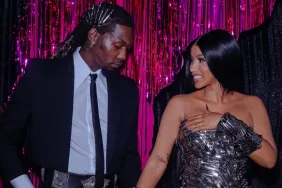My oldest daughter has autism. She is 21-years-old now, but back then autism was rare. It was barely on any pediatrician’s radar, although plenty of stereotypes existed, thanks to depictions of autism in movies like Rain Man. These days parents of children with speech delays or social difficulties often tell me that their doctors bring up “autism” before they’ve even closed the exam room door. It’s amazing how times have changed.
As a toddler, my daughter began missing her milestones, and I knew she wasn’t just a “lazy baby” (as one doctor affectionately called her). She had no urge to crawl or speak, searched out adults rather than other toddlers, and tried to put a doll in a wooden puzzle rather than play “baby doll.” When she didn’t walk they prescribed physical therapy. When she was unable to (or uninterested in) picking up finger food they prescribed occupational therapy. When she didn’t make eye contact we were sent to a pediatric opthalmologist. We soon added a speech therapist and neurologist to our list of doctors, with each doctor treating her for the symptom that fit his or her specialty.
As her mom, I knew there was something else going on; all of these difficulties seemed connected somehow and treating each one in isolation felt like a mistake. I mentioned autism several times to the specialists we saw. I took special education courses in college, as well as babysat a girl on the autism spectrum during high school, and there were things I recognized in my daughter that seemed consistent with what I knew about autism. Maybe not as severe or not what most consider textbook autism but she fit somewhere along the spectrum; the more time went on, the more I was sure of it.
But here’s the thing: Every time I brought up autism to a physician I’d be dismissed with, “She’s a very social girl, look at that smile!” “She doesn’t line things up, does she? Can she count to high numbers quickly?” The physicians caring for my daughter were looking for the classic signs of autism, only seen in movies or on television at that point.
We continued on our path of treating her various issues and she did improve in some areas. Her speech became more developed, she walked, and she began to tolerate more foods and textures. Her social delays, however, stayed the same.
When she was nearly 5 I discovered that there was an autism expert in our area: Dr. Richard Solomon, founder of the P.L.A.Y. Project and (back then) a staff member of the University of Michigan’s Autism Center. His office was just a short drive away from our home. I remember being a nervous wreck on the way to the appointment, because I knew whatever this doctor said I would accept and we would move forward. If it wasn’t autism then we would keep on working and hoping for progress. If it was autism I looked forward to a path with a few more guidelines than the one we had been following.
My daughter handled the toys in the exam room as she typically did. Rather than examine her physically and ask me questions Dr. Solomon watched her play. He tried to communicate with her and attempted to get her to mimic his actions. Within a half hour he looked at me and said, “Was there ever any question that it wasn’t autism? As her mom you already know, don’t you?”
And I did. I cried in the hospital parking garage after the appointment and I alternated between blubbering and feeling hopeful the rest of the way home. Even though I knew in my heart my daughter had autism, receiving the definitive diagnosis was more emotional than I ever imagined it would be.
But I drove home that day determined to get my daughter the help she needed and to continue following my instincts, even though I’m not the one with a medical degree. Moms so often do know best; sometimes we just have to wait for the right person to tell us that we’re right.
Photo: Getty








